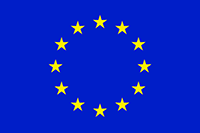

Research class: InfoCoV & MESOC joint research workshop
On June 11th, 2021, the University of Rijeka held a joint research workshop about two projects: InfoCov, focusing on the research of the social aspects of COVID-19 pandemic and funded by the Croatian science foundation, and our project MESOC. During this workshop, project collaborators and doctoral students presented current research activities and results.
The afternoon was dedicated to the MESOC tools developed by the University of Rijeka: the Repository of Documents, the Toolkit and the Serapeum, respectively presented by Božidar Kovačić, Sanda Martinčić-Ipšić and Dragan Čišić.
MESOC Repository of documents is a searchable collection of thematic publications of relevant cultural policies and practices to extract the most appropriate impact transmission variables and indicators in retrospect and to analyze what have been the critical success factors in determining the final outcomes of the selected transition pathway. Their successful deployment will be associated with the academic profile of the research team coordinating the efforts purporting to their delivery. The activity consists of collecting, selecting and analysing relevant documents on the social impacts of cultural policies, covering all the three dimensions of Health and Well Being, Urban and Territorial Renovation, People’s Engagement and Participation. The repository offers features for organizing documents in different collections and it will be available on the official project website, even after the project’s end. Technology for the development of Online Document Repository is based on MVC model and includes Relational database MySQL, PHP programing language and Phalcon framework. Development of communication module for data exchange between the repository of documents and the MESOC Toolkit web application enables fast access and retrieval of data from the document repository and the MESOC Toolkit app.
MESOC Toolkit is a natural language processing powered analytical tool aimed to discover the impacts of cultural policies and practices on society. The toolkit is tasked with the automatic discovery of hidden semantic structures under the perspective of societal value creation and uncovering latent transmission processes. MESOC toolkit is a georeferenced visualization dashboard system organized around MESOC matrix. The MESOC matrix cross-references cultural domains (introduced by the EUROSTAT) against the three pillars of the structural model. Ten cultural domains are Heritage, Archives, Libraries, Book and Press, Visual Arts, Performing Arts, Audiovisual and Multimedia, Architecture, Advertising and Art crafts. Three pillars of the structural model stem from three crossover themes of the new European Agenda for Culture: Health and Wellbeing, Urban and Territorial Renovation and Social Cohesion. Underlaying NLP engine incorporates multiclass document classification, the discovery of impacts and semantic retrieval according to the analyzed content. The toolkit is implemented as the web app capable of two use case scenarios: (1) georeferenced explorative analysis of city use cases (red) and scientific (blue) studies and (2) automatic analysis of user-generated content.
MESOC Serapeum is an AI playground for the MESOC partners. The idea is to create a system that would introduce consortium members into AI. The system, therefore, uses several different methods for NLP, especially transformers. Facebook's FastAi, Google's BERT, and OpenAIi GPT2 are especially represented. The system contains 7 different models of supervised learning and 2 models of transfer learning.
Other lectures were carried out on the technical aspects of these tools and their role in the project.
Find more details with the workshop abstracts.

